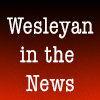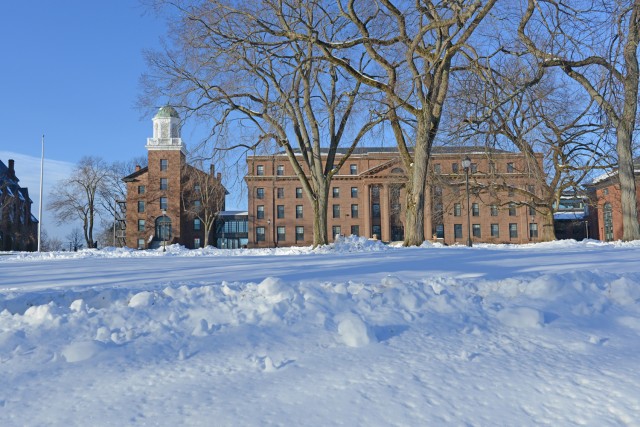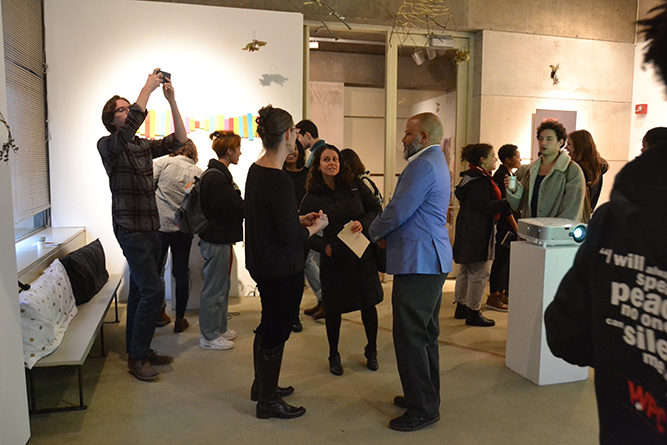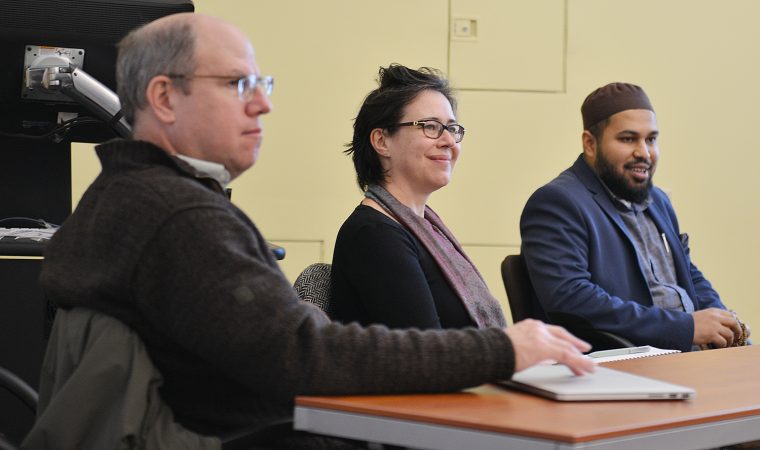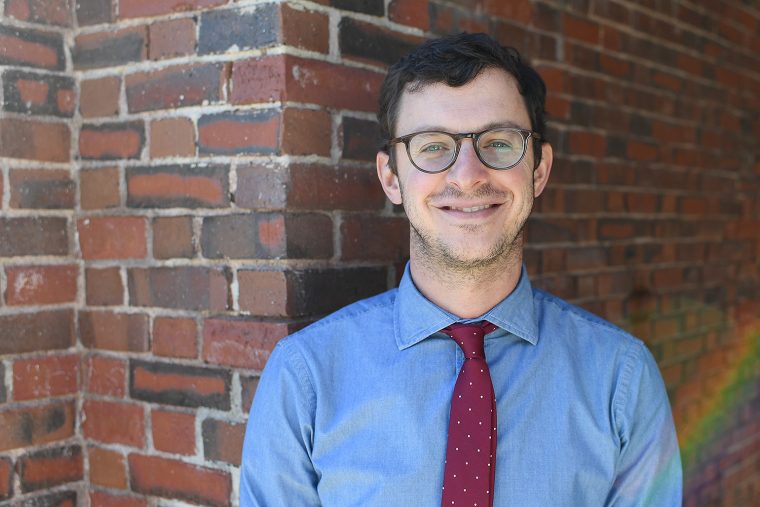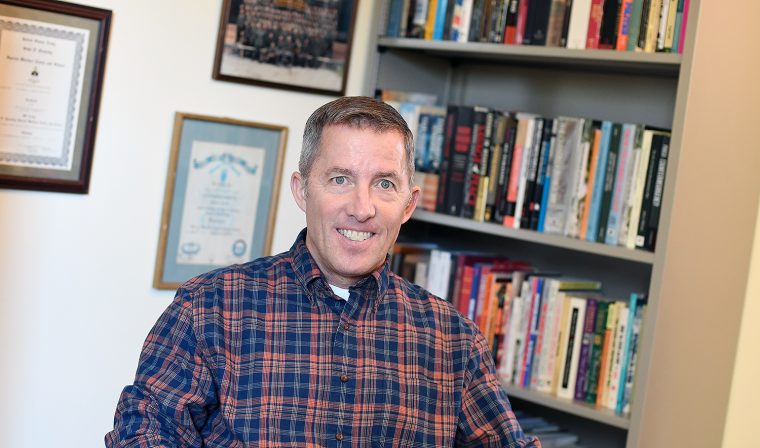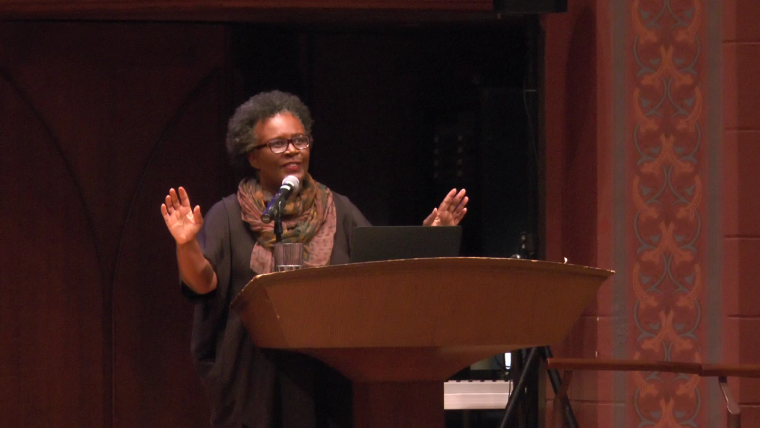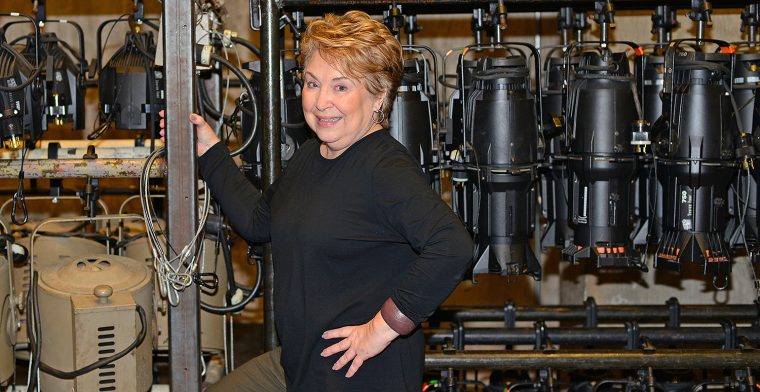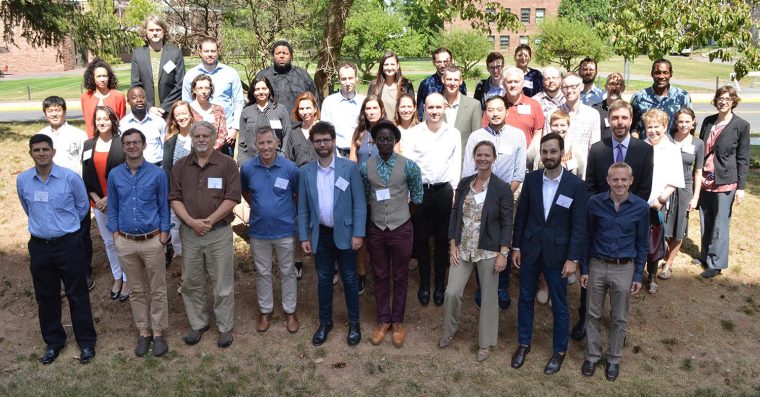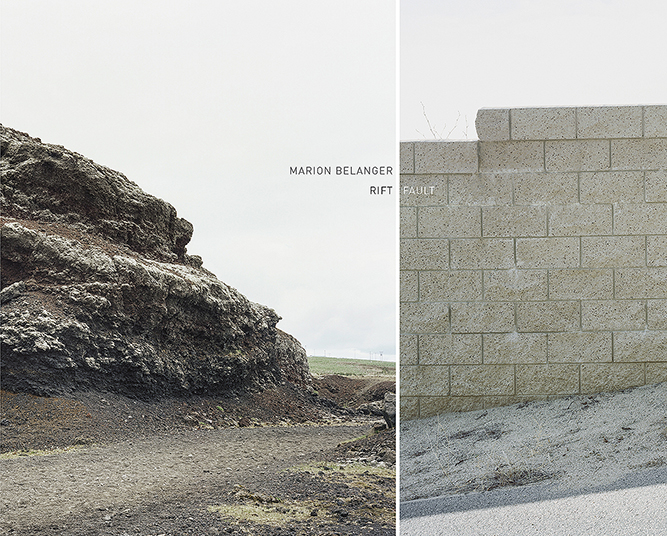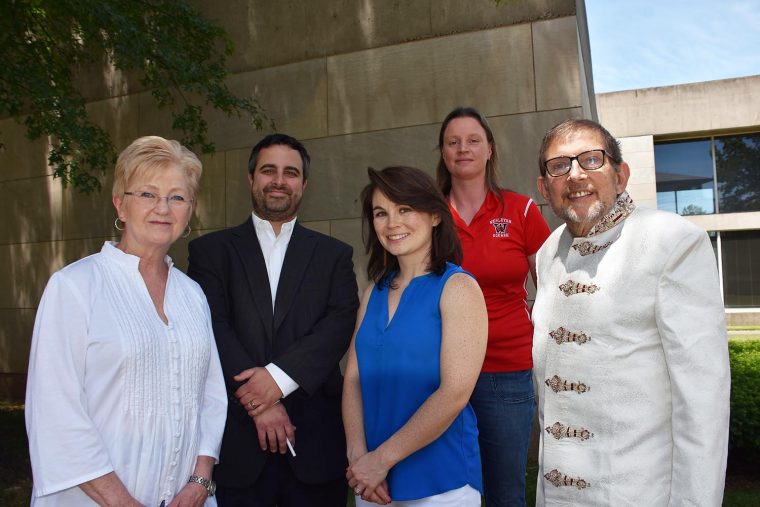In this recurring feature in The Wesleyan Connection, we highlight some of the latest news stories about Wesleyan and our alumni. Recent Wesleyan News Variety: "Entertainment Education Report: The Best Film Schools in 2018" Wesleyan is highlighted as one of the best schools to study film. An exceptional group of filmmakers, including Joss Whedon '87 and Michael Bay '86, have cited Jeanine Basinger, the Corwin-Fuller Professor of Film Studies, as a major influence on their understanding of film. 2. Hartford Courant: "New Bike Share at Wesleyan Offers Speedy Transport for Students" Sustainability Director Jennifer Kleindienst discusses Wesleyan's new partnership with San Francisco–based start-up Spin to…
In its most recent meeting, the Board of Trustees promoted eight faculty. Their promotions will be effective July 1, 2018. The Board conferred tenure to Kathleen Birney, associate professor of classical studies; Greg Goldberg, associate professor of sociology; Ruth Johnson, associate professor of biology; Melanie Khamis, associate professor of economics; Marguerite Nguyen, associate professor of English; Sasha Rudensky, associate professor of art; Victoria Smolkin, associate professor of history; and Ao Wang, associate professor of East Asian studies. Brief descriptions of their areas of research and teaching appear below: Kathleen Birney Professor Birney is a Mediterranean archaeologist whose research focuses on understanding interactions…
(more…)
In this Q&A, Assistant Professor of Government Justin Peck speaks about his research interests, teaching at Wesleyan and road-tripping across the United States. (Brandon Sides ’18 contributed to this article.) Q: Professor Peck, what are your primary areas of research? A: My dissertation attempts to explain when and why post-WWII Congresses enacted legal constraints on executive authority. And that's now my primary area of research; the second area of my research concerns when and how the Republican Party’s position on civil rights issues has changed since the Civil War. Q: What are your current projects? A: I'm working on a book…
In this Q&A, and in honor of Veterans Day on Nov. 11, Retired Military Officer Teaching Fellow Robert “Bob” Cassidy speaks about his military career, thoughts on the Iraq invasion and teaching at Wesleyan. (Brandon Sides ’18 contributed to this article.) Q: How did you acquire your teaching fellowship at Wesleyan? A: I received a Retired Officer Teaching Fellowship (ROTF) through the Chamberlain Project, which supports fellowships at some of the nation’s top liberal arts institutions. Fellows are required to work on building relationships and understanding between the U.S. Armed Services and civilian institutions and to contribute to the richness and diversity of students’ educational experiences. We…
For this year’s First Year Matters program, incoming new students read Claudia Rankine’s Citizen: An American Lyric during the summer before their arrival on campus. Rankine, a noted poet and author, had been on campus for Commencement 2017, when she received an honorary degree and addressed the graduating class. On Sept. 1, Rankine was back at Wesleyan to address the Class of 2021, offering insights into the development of the book. She also entered into a discussion with first-year students, taking questions from the audience, who gave her snaps of approval throughout her talk and a standing ovation at the…
The Theater Department has begun fall semester with a new chair who combines an impressive list of creative accomplishments with deep and varied experience as an academic administrator. Kathleen Conlin, Frank B. Weeks Visiting Professor of Theater, has held tenured faculty positions at the University of Texas at Austin, Ohio State University, and the University of Illinois in Champaign/Urbana. While juggling the varied demands of an academic career, she also served for 22 seasons as associate artistic director and stage director at the Utah Shakespeare Theater. “I love being around young people who are not narrowly defined and are actively…
This year, Wesleyan welcomes 11 new tenure-track faculty, one professor of the practice, and 45 visiting faculty and fellows. The new junior faculty who start this year include: Scott W. Aalgaard, assistant professor of East Asian studies Aalgaard holds BA and MA degrees from the University of Victoria, and MA and PhD degrees from the University of Chicago. His dissertation, titled “‘Homesick Blues’: Crisis, Critique, and Collectivity in Modern Japanese Cultural Production,” traces critical voices in literature, music, and everyday life in modern and contemporary Japan. His areas of research include critical practice in Japan, contemporary Japanese culture, modern and contemporary Japanese literature…
Graduate Liberal Studies visiting professor Marion Belanger P’02, is the author of Rift/Fault, a photographic study of the land-based edges of the North American Continental Plate. A Guggenheim Fellowship in 2002 supported a project in the Everglades, where Belanger turned her lens on both the landscape within the national park as well as the suburban development of the swamplands outside the protected area. Now, Rift/Fault continues her interest in natural land formations and boundaries—this one along the San Andreas Fault in California and the Mid-Atlantic Rift in Iceland—and the influence of human society on the earth Published by Radius Books, and…
In recognition of their career achievements, the following faculty members are being appointed to endowed professorships, effective July 1: Joe Knee, professor of chemistry and dean of the Natural Sciences and Mathematics Division, is receiving the Beach Professorship of Chemistry, established in 1880. Janice Naegele, professor of biology, is receiving the Alan M. Dachs Professorship of Science, established in 2011. Stewart Novick, professor of chemistry, is receiving the Joshua Boger University Professorship of the Sciences and Mathematics, established in 2010. Christopher Parslow, professor of classical studies, is receiving the Robert Rich Professorship of Latin, established in 1863. Irina Russu, professor…
An 18-piece all-star band, including five members of the Wesleyan community, will perform the Beatles’ Abbey Road album in its entirety during a benefit concert at Middlesex Community College (MCC) on Saturday, June 24, at 6 p.m. The concert is the third annual event held in memory of former Wesleyan Center for the Arts (CFA) intern Stephanie Nelson, of Middletown, who passed away in early 2015 at the age of 25. The first two benefit concerts, held in 2015 and 2016, raised more than $6,400 to establish and fund the Stephanie Nelson Scholarship at MCC, Nelson’s alma mater. Each May,…


